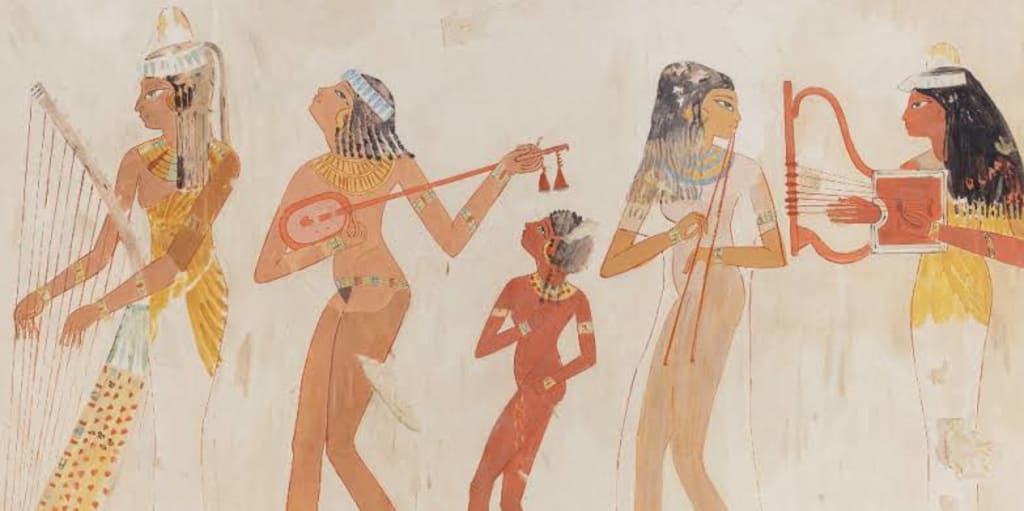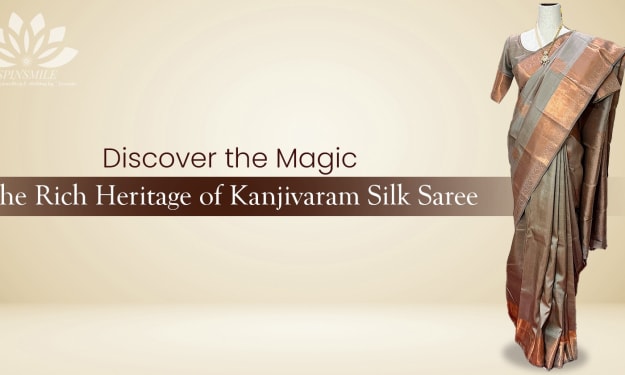Rhythms of the Nile: The Intricate Relationship Between Music and Poetry in Ancient Egyptian Civilization
The Intricate Relationship Between Music and Poetry in Ancient Egyptian Civilization

Introduction
In the majestic land of ancient Egypt, music and poetry held a profound significance in the daily lives of its people. The harmonious melodies and enchanting verses were not merely forms of entertainment, but integral components of their culture and spirituality. The melodies of ancient Egyptian music resonated through the corridors of time, while the poetic verses adorned the walls of temples and tombs. Let us embark on a journey to explore the intricate relationship between music and poetry in the enigmatic civilization of ancient Egypt.
The Significance of Music and Poetry in Ancient Egyptian Society
Music and poetry held a central role in the social fabric of ancient Egyptian society. They were not only sources of entertainment but also served as powerful tools for communication and expression. Whether it was a joyful celebration or a solemn ritual, music and poetry were there to evoke emotions, tell stories, and connect individuals in a profound way.
Musical Instruments and Their Role in Ancient Egyptian Music
To bring their music to life, the ancient Egyptians crafted a wide array of musical instruments. The haunting melodies of the flute, the rhythmic beats of the drum, and the enchanting strums of the harp filled the air with a symphony of sounds. These instruments played a pivotal role in religious ceremonies, royal processions, and communal gatherings, creating an immersive experience for all who listened.
The Connection Between Music and Poetry in Ancient Egyptian Culture
In ancient Egypt, music and poetry were intricately intertwined, forming a symbiotic relationship that elevated the arts to new heights. The melodies of the music were often composed to accompany the recitation of poetry, enhancing the emotional impact of the verses. This connection between music and poetry allowed the ancient Egyptians to convey their deepest thoughts and emotions with a heightened sense of beauty and power.
Famous Ancient Egyptian Musicians and Poets
Throughout the annals of ancient Egyptian history, there emerged many legendary musicians and poets who left an indelible mark on the cultural landscape. One such figure was Hesy-Ra, a renowned musician and poet who served as the chief singer in the court of Pharaoh Djoser. His compositions, known as the “Hesy-Ra Songs,” were a testament to his mastery of both music and poetry, capturing the hearts of the Egyptian people for generations to come.
The Use of Music and Poetry in Religious Ceremonies and Rituals
Religion played a central role in ancient Egyptian society, and music and poetry were integral parts of religious ceremonies and rituals. The melodic chants and hymns sung by priests and priestesses invoked the presence of the gods and goddesses, creating a sacred atmosphere. Through the combination of music and poetry, the ancient Egyptians sought to connect with the divine and ensure the favor of the gods.
The Influence of Music and Poetry on Ancient Egyptian Art and Literature
The influence of music and poetry extended beyond the realm of sound, permeating into the realms of art and literature. The intricate hieroglyphs that adorned the walls of temples and tombs often depicted musicians playing their instruments, while poetic verses were inscribed alongside them. This integration of music and poetry with visual art solidified their importance and served as a testament to their enduring legacy.
The Preservation and Study of Ancient Egyptian Music and Poetry
Despite the passage of millennia, the echoes of ancient Egyptian music and poetry are not entirely lost to us. Through the meticulous preservation of artifacts and texts, as well as the dedicated efforts of scholars and researchers, we have been able to catch glimpses of the rich musical and poetic traditions of this ancient civilization. These invaluable insights have deepened our understanding of ancient Egyptian culture and continue to inspire musicians and poets to this day.
Modern Interpretations and Adaptations of Ancient Egyptian Music and Poetry
The allure of ancient Egyptian music and poetry transcends time, captivating the imaginations of artists in the modern era. Musicians and poets from around the world have drawn inspiration from the rhythmic patterns, melodic scales, and poetic themes of ancient Egypt, infusing them into their own creations. This modern reinterpretation and adaptation of ancient Egyptian music and poetry not only pay homage to the past but also ensure that their legacy lives on.
The Role of Music and Poetry in Religious Rituals
Religious rituals in ancient Egypt were often accompanied by elaborate musical performances and poetic recitations. These rituals served as a means to connect with the gods and goddesses, seeking their blessings and divine intervention. The combination of music and poetry created a sacred atmosphere, elevating the spiritual experience for both the participants and the deities.
Musical Instruments Used in Ancient Egypt
To create the ethereal melodies that accompanied the poetry, ancient Egyptians crafted a diverse range of musical instruments. From the haunting sounds of the sistrum to the enchanting tones of the lyre, these instruments were meticulously crafted to produce specific sounds and evoke particular emotions. The craftsmanship and artistry of these instruments were a testament to the importance of music in ancient Egyptian culture.
The Connection Between Music and Poetry in Ancient Egyptian Society
Music and poetry were inseparable in ancient Egyptian society. They were often performed together, with the music accentuating the emotional impact of the poetic verses. This connection allowed the ancient Egyptians to express their deepest thoughts and emotions in a way that transcended language barriers. The combination of music and poetry created a powerful medium for communication and self-expression.
The Influence of Ancient Egyptian Music and Poetry on Modern Culture
The legacy of ancient Egyptian music and poetry extends far beyond the boundaries of their civilization. Their rhythms, melodies, and poetic themes have found their way into various genres of music and forms of poetry throughout history. From classical compositions to contemporary spoken word performances, the echoes of ancient Egypt continue to resonate in the music and poetry of today.
The Legacy of Ancient Egyptian Music and Poetry in Contemporary Times
The enduring legacy of ancient Egyptian music and poetry can be seen in the continued fascination and admiration for this ancient civilization. Museums around the world proudly display artifacts and texts that reveal the secrets of their musical and poetic traditions. Academics and enthusiasts alike continue to study and explore the depths of ancient Egyptian culture, ensuring that their music and poetry remain alive in our collective consciousness.
Preservation and Study of Ancient Egyptian Music and Poetry
The preservation and study of ancient Egyptian music and poetry have been a labor of love for scholars and researchers. Through the meticulous examination of ancient texts, deciphering hieroglyphs, and analyzing musical artifacts, we have been able to piece together fragments of this ancient art form. This ongoing effort allows us to gain a deeper understanding of ancient Egyptian society and appreciate the beauty and complexity of their music and poetry.
Examples of Ancient Egyptian Musical Compositions
While the melodies of ancient Egyptian music have largely been lost to time, we have been fortunate enough to uncover fragments of musical compositions through the meticulous study of ancient texts. These compositions provide us with a glimpse into the musical world of ancient Egypt, allowing us to imagine the haunting melodies and intricate rhythms that once filled the air.
Preservation and Study of Ancient Egyptian Music and Poetry
The preservation and study of ancient Egyptian music and poetry have been a labor of love for scholars and researchers. Through the meticulous examination of ancient texts, deciphering hieroglyphs, and analyzing musical artifacts, we have been able to piece together fragments of this ancient art form. This ongoing effort allows us to gain a deeper understanding of ancient Egyptian society and appreciate the beauty and complexity of their music and poetry.
The rhythms of the Nile and the verses of ancient Egypt continue to captivate and inspire us. The intricate relationship between music and poetry in ancient Egyptian civilization is a testament to the profound impact of the arts on human society. As we unravel the mysteries of this enigmatic civilization, let us embrace the enduring legacy of their music and poetry, for they hold within them the essence of a culture that continues to resonate in our hearts and minds.
The Enduring Legacy of Music and Poetry in Ancient Egyptian Civilization
As we delve into the depths of ancient Egyptian civilization, we uncover a world where music and poetry reigned supreme. Their profound significance in society, their integral role in religious ceremonies, and their lasting influence on art and literature bear witness to the enduring legacy of music and poetry in this enigmatic civilization. Let us embrace the rhythms of the Nile and the verses of ancient Egypt, for they hold within them the essence of a culture that continues to inspire and captivate us to this day.
About the Creator
Shimaa Abdelkader
I am 27 years old. I blog about trends worldwide. A high-quality SEO content writer with 6 years of experience.
Enjoyed the story? Support the Creator.
Subscribe for free to receive all their stories in your feed. You could also pledge your support or give them a one-off tip, letting them know you appreciate their work.






Comments
There are no comments for this story
Be the first to respond and start the conversation.